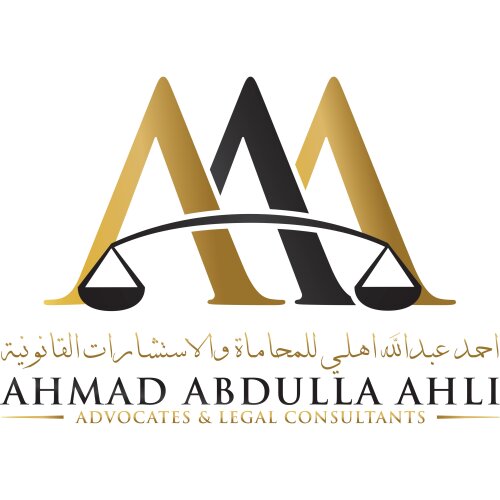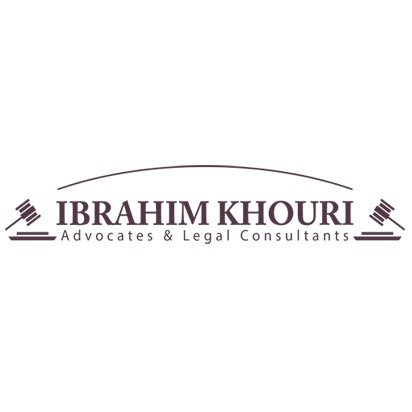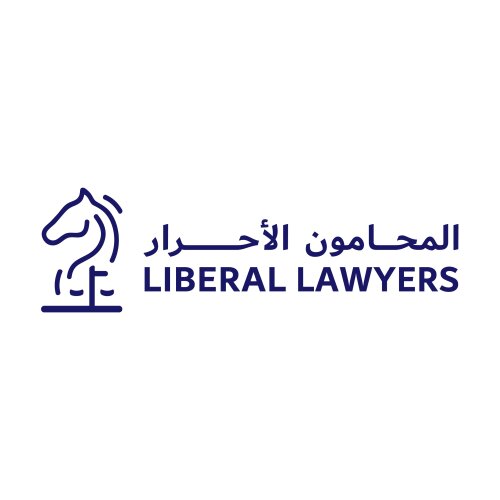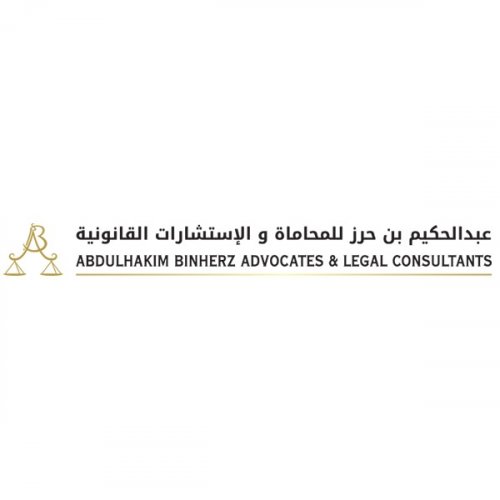Best Structured Finance Lawyers in United Arab Emirates
Share your needs with us, get contacted by law firms.
Free. Takes 2 min.
Or refine your search by selecting a city:
List of the best lawyers in United Arab Emirates
About Structured Finance Law in United Arab Emirates
Structured finance in the United Arab Emirates (UAE) refers to complex financial transactions that go beyond traditional lending or borrowing. These transactions typically involve pooling financial assets, such as loans or receivables, and restructuring them to raise funds or manage financial risk. Common types of structured finance products include asset-backed securities, securitizations, collateralized loan obligations, and syndicated loans. Owing to the UAE's position as a global business hub, structured finance transactions are increasingly used by corporations, financial institutions, and investment entities operating within or through the UAE. The legal framework is shaped by a combination of federal and emirate-level legislation, international best practices, and the guidelines of regulatory authorities such as the Central Bank of the UAE and the Dubai Financial Services Authority.
Why You May Need a Lawyer
Structured finance deals are multifaceted and require a thorough understanding of local and international legal requirements. Legal advice can be crucial in several situations, including:
- Structuring or participating in securitization transactions
- Drafting and negotiating loan agreements or asset transfer documentation
- Ensuring compliance with regulatory approvals and licensing
- Managing cross-border transactions and accounting for differences in local laws
- Advising on taxation, bankruptcy, and insolvency implications
- Assessing legal risks and designing risk mitigation strategies
- Navigating disputes arising from breaches of structured finance transactions
- Advising on Sharia-compliant finance structures
The assistance of a lawyer ensures these transactions are compliant, efficient, and aligned with your best interests.
Local Laws Overview
Structured finance in the UAE operates within a legal context combining civil law principles, Islamic finance laws, and international regulatory standards. Key areas of relevance include:
- Company and Commercial Laws: The UAE Commercial Companies Law sets out the requirements for companies engaging in structured finance, including licensing, corporate structure, and capital requirements.
- Banking and Finance Regulations: Transactions may fall under the purview of the Central Bank of the UAE, the Securities and Commodities Authority, or sector-specific regulators in free zones such as the Dubai International Financial Centre (DIFC) or Abu Dhabi Global Market (ADGM).
- Securitization Framework: While there is no standalone securitization law in the UAE, asset-backed securities and similar instruments are subject to strict disclosure, registration, and investor protection requirements.
- Islamic Finance Principles: Sharia-compliant structures must avoid interest and excessive uncertainty, and often utilize Sukuk (Islamic bonds) and other compliant mechanisms.
- Insolvency and Bankruptcy: The UAE’s bankruptcy law provides direction on creditor rights, priorities, and the treatment of assets in case of insolvency. DIFC and ADGM have their own insolvency regimes that may apply.
- Dispute Resolution: Structured finance disputes may be resolved in UAE onshore courts or, for contracts in free zones, in the specialist courts of DIFC or ADGM. International arbitration is also commonly used.
Given the complexity of regulations and the involvement of multiple authorities, specialized legal advice is essential at every stage.
Frequently Asked Questions
What is structured finance in the context of the UAE?
Structured finance refers to customized financial arrangements, including securitizations and syndicated loans, designed to optimize funding and risk management for businesses and financial institutions. In the UAE, these are often tailored to comply with local laws and regulations.
Is securitization legal in the UAE?
Yes, securitization is possible in the UAE, though there are no standalone laws specifically governing securitization. Such transactions must comply with existing company, securities, and regulatory laws, and may also be subject to Central Bank or Securities and Commodities Authority oversight.
Can foreign entities participate in structured finance transactions?
Foreign entities may participate in structured finance deals, especially through free zones such as DIFC and ADGM, where international standards and English common law often apply. Local laws on foreign ownership and regulatory approvals must still be considered.
Are Islamic finance principles applied in UAE structured finance?
Yes, many structured finance products in the UAE are structured to be Sharia-compliant, utilizing mechanisms such as Sukuk. Legal advice is needed to ensure transactions adhere to Islamic law where required.
Which authorities regulate structured finance in the UAE?
Regulatory oversight may involve the Central Bank of the UAE, the Securities and Commodities Authority, and the regulators of free zone jurisdictions, notably the Dubai Financial Services Authority (DIFC) and the Financial Services Regulatory Authority (ADGM).
How does insolvency law affect structured finance transactions?
The UAE’s insolvency framework establishes creditor rights, enforceability of security interests, and priorities in asset distribution during bankruptcy. DIFC and ADGM have modern, independent insolvency laws catering to structured finance.
Are there restrictions on the transfer of assets in structured finance deals?
Asset sales and transfers must comply with registration requirements, consent obligations, and may be restricted by law or contract. Guidance from an experienced lawyer helps resolve compliance issues.
Is it possible to structure a transaction under the laws of DIFC or ADGM?
Yes, structuring deals under DIFC or ADGM law can provide greater certainty and international recognition, as these jurisdictions have developed legal systems based on English common law and robust regulatory frameworks.
What are the typical risks in structured finance transactions?
Common risks include legal enforceability, regulatory non-compliance, misrepresentation of asset quality, insolvency risks, and cross-border legal conflicts. Mitigating these risks needs detailed legal due diligence and expertise.
How do I find a suitable lawyer for structured finance matters in the UAE?
Look for specialist law firms with a track record in banking, finance, and cross-border transactions. Firms based in DIFC or ADGM often have the international expertise necessary for complex deals, and membership in respected legal associations is a positive indicator.
Additional Resources
Several organizations and resources can assist with structured finance matters in the UAE, including:
- Central Bank of the United Arab Emirates: Oversees banking and financial activities onshore.
- Securities and Commodities Authority: Regulates securities issuance and trading.
- Dubai International Financial Centre Authority and Dubai Financial Services Authority: Regulate structured finance in the DIFC free zone.
- Abu Dhabi Global Market and its Financial Services Regulatory Authority: Oversee financial services in the ADGM free zone.
- UAE Ministry of Economy: Handles business registrations and commercial matters.
- UAE Bar Association: Directory of licensed legal practitioners.
- International law firms with offices in Dubai and Abu Dhabi: Many have finance teams specializing in local and international structured finance.
Next Steps
If you require legal assistance for a structured finance matter in the UAE, consider the following steps:
- Identify the goals of your transaction and the type of structured finance product you are interested in.
- Gather all relevant documents relating to your transaction, such as business plans, financials, and draft agreements.
- Contact specialist law firms with demonstrated expertise in structured finance and UAE regulations, especially those with presence in free zones.
- Arrange an initial consultation to discuss your needs, obtain an overview of the legal issues, and assess the firm’s experience.
- Work with your chosen legal advisor to ensure compliance with all local and international laws, prepare transaction documents, and manage regulatory approvals.
- Stay informed of regulatory updates or changes in UAE law that may affect the transaction’s structure or implementation.
Engaging a qualified lawyer early in the process ensures your structured finance transaction proceeds smoothly and in full compliance with UAE legal requirements.
Lawzana helps you find the best lawyers and law firms in United Arab Emirates through a curated and pre-screened list of qualified legal professionals. Our platform offers rankings and detailed profiles of attorneys and law firms, allowing you to compare based on practice areas, including Structured Finance, experience, and client feedback.
Each profile includes a description of the firm's areas of practice, client reviews, team members and partners, year of establishment, spoken languages, office locations, contact information, social media presence, and any published articles or resources. Most firms on our platform speak English and are experienced in both local and international legal matters.
Get a quote from top-rated law firms in United Arab Emirates — quickly, securely, and without unnecessary hassle.
Disclaimer:
The information provided on this page is for general informational purposes only and does not constitute legal advice. While we strive to ensure the accuracy and relevance of the content, legal information may change over time, and interpretations of the law can vary. You should always consult with a qualified legal professional for advice specific to your situation.
We disclaim all liability for actions taken or not taken based on the content of this page. If you believe any information is incorrect or outdated, please contact us, and we will review and update it where appropriate.
Browse structured finance law firms by city in United Arab Emirates
Refine your search by selecting a city.

















